#john 11
Photo

03/24/2023
Silly Rabbi!
___
JOKE-OGRAPHY:
My favorite part of this one is that I've added/paraphrased almost nothing here. In the Bible story, Jesus is told that His good friend Lazarus has died, so He plans to go bring him back from the dead (or "awaken him"). He tells the disciples that Lazarus has "fallen asleep", but the disciples take that literally and try to comfort Jesus by saying Lazarus will awaken on his own. Jesus reiterates very clearly that by "fallen asleep", He means Lazarus died. Thomas is reluctant to let Jesus go to Judea, because last time they were there, apparently Jesus riled up the Jews with His "Son of God" wallamaguckery, but Jesus doesn't let a silly little thing like angry people plotting to arrest and murder Him get in the way of an unslumber party with His best pal!
AUTHOR'S NOTE:
Before the mantle of the earth was cooled, before the sea was sealed in its basin, before the sky was locked in place above the clouds, and before the first "Tomic" was officially published, a cartoon was drawn. Now, it is reborn. This is not technically a "Tomics Resurrection", because the original did not bear the "Tomics" name. No, this was after the era of sand and scholars but before the era of blood and time, and now, it's our very first "Proto-Tomic Resurrection". I've taken a random digital Jesus comic that I drew for my own amusement before my Tomics days and made it part of the official Tomics family. Here's the original for reference. You'll note a drastic change in character design, background art, and handwriting, and hopefully you'll agree I've improved, or else we're going to have some major problems:
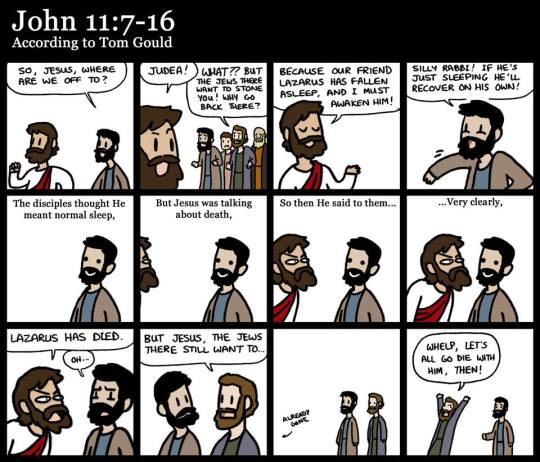
#jesus#lazarus#jesus humor#jesus memes#jesus art#bible#bible memes#bible humor#bible art#apostles#peter#st peter#thomas#st thomas#john 11#catholic#catholic memes#catholic humor#catholic art#christian#christian memes#christian humor#christian art#tomics#tom gould#cartoon#comic#using a bunch of figurative speech to teach your followers#then just dropping all pretense and tellin em straight cause theyre not the sharpest bulbs in the deck
614 notes
·
View notes
Text
“God Planning Your Pain to Make a Point” (John 9:1-3) [A Guest Card Talk]
“God Planning Your Pain to Make a Point” (John 9:1-3)
A Guest Card Talk by Matthew E. Henry*
It’s What You See
As [Jesus] walked along, he saw a man blind from birth. His disciples asked him, “Rabbi, who sinned, this man or his parents, that he was born blind?” Jesus answered, “Neither this man nor his parents sinned; he was born blind so that God’s works might be revealed in him. … When he had said this, he spat on the ground and made mud with the saliva and spread the mud on the man’s eyes, saying to him, “Go, wash in the pool of Siloam”…Then he went and washed and came back able to see. (From The Gospel According to John 9:1-7, NRSV)
As a poet and educator, a quote from Henry David Thoreau is often on my mind: it’s not what you look at that matters, but what you see. There’s a lot in John chapter 9 to be seen, and it would be easy to focus on all of the blindness, the lack of sight in this story:
The man at the center of the story is literally blind. (vs 1)
The disciples’ lack of understanding and metaphoric blindness before the healing takes place. (vs 2-7)
How, after sight is granted to the formerly blind man, the Pharisees and the crowd display a lack of belief (spiritual blindness) by questioning if the man was even really blind to begin with, and then driving his whole family out of their religious community for their dealings with Jesus. (vs 8-41)
All of these elements are fair game, clearly build upon each other, and are a part of the central point of the passage. It’s also what I was taught as a kid in Sunday School. But this was never the first thing I saw. I was always deeply bothered by this flannel graph favorite, but it took me years to understand what was staring me right in the face: the blindness of Jesus.
maybe Jesus needed more time to think
the disciples asked Him whose sin blinded
this man from birth: his, his parents? appalled,
Martha cannot believe in this Jesus
whose deaf answer trembles her Bible closed.
so that you could see the power of God?
she remembers the eyes which accused her
of lapses in prenatal care. questioned
her fidelity. found lawful cause for
his tiny body’s chronic rebellion
against its own good. as the pastor reads
His response, she finds their false blame better—
more acceptable—than sons suffering
for parlor tricks, divine object lessons.
~ MEH
What Do We Deserve?
From the outset, this story is a theological and emotional rollercoaster. Jesus sees a man who is blind, and since this is Jesus, we assume a healing is forthcoming. But before He can open His mouth, His disciples ask a provocative question:
“Rabbi, who sinned, this man or his parents, that he was born blind?” (vs2)
The disciples see someone in pain and ask a question accusing the man and his family of being so sinful that he deserves his aliment. The implication is plain: natural pain, illness, or sickness is the result of sin. We get what we deserve, which may include bearing the burden of our parents’ sin.
Look, I’m a high school teacher. I have no problem with basic “cause and effect” logic when it comes to consequences. You didn’t do your homework or study, so you failed the test. You tipped back in your chair, so you fell over. You said something racist/sexist/homophobic to the wrong person on the right day, so now you walk with a limp. Speeding can cause an accident. Unprotected sex can result in an STD. Uncritical voting practices can, ironically, lead to the downfall of democracy. These are outcomes easy to understand. But most of us will balk at the idea that we “deserve” an effect that is not a direct result of something we ourselves caused.
To some degree we can begrudgingly accept the reality that the decisions that others make, especially our parents, can have a negative impact on us. Ask the family, significant other, coworker, or employee of abusers, alcoholics, emotional manipulators, gamblers, or any other shitty people. We can all be hurt by the actions of others, but to say we “deserve” that hurt is unhealthy. [Pause: if you don’t think this is true, you are probably in an abusive situation, as your friends have been telling you for years. Listen to them. Get out.]
The beginnings of Jesus’ responses bears out the truth of this:
Jesus answered, “Neither this man nor his parents sinned… (vs 3a)
YES, Jesus! Smack down their highly problematic theological assertion—their backward hamartiology imputing sin on the innocent. This is where the story should: Jesus drops this knowledge, heals the man who is blind, and they all go out to throw loan sharks out of the Temple. But the problem is that Jesus keeps (f**king) talking…
“…he was born blind so that God’s works might be revealed in him.” (vs 3b)
Seriously Jesus: WTF?
Let’s really stop and unpack this.
In answering thier question, Jesus says that this man’s decades of blindness was preordained by God—presumably before the foundations of the earth were lain—as a “parlor trick” or “divine object lesson” for the benefit of the disciples (and presumably everyone else who would come in contact with the healed man, whether in person, or reading his story in the Christian New Testament). Yes. The number of people impacted by this miraculous event is an amazing witness. And no doubt the formerly blind man was very grateful for his healing (you know, save for the whole having his life of pain questioned and his family run out of town thing, which undoubtedly sucked). But, again, let’s really look at what this means.
Let’s propose a new scenario: a mother has a child with a serious physical or cognitive limitation which significantly harms the child’s quality of life. She hears this story being preached by her pastor/priest from the pulpit one Sunday morning. What would she take away from this tale?
It’s one thing to believe an almighty God is doing the Divine’s Best to redeem all our free will actions—that “all things working together for good” (Romans 8:28) means that God is exerting effort in the face of the causes and effects that lead to our pain. Call it “natural evil,” or “a result of The Fall,” or “nature red in tooth an claw,” or “shit happens,” this mother, like many of us, can begrudgingly accept this idea when it comes to “why bad things happen.”
But it is another thing entirely to ask this woman if she is comfortable serving a God who believes that the ends justify the means. Asking her to accept a utilitarian model of theodicy—achieving “the most good for the most people” means that some people have to suffer by divine design. What could she take away other than false hope or anger at the prospect that maybe, hopefully, there is “some good reason” that God has for directly causing her child pain?
That might be a shit-filled pill too large to swallow.
It Gets Worse
I am not the only person who thinks this. Other characters in the Bible do as well. If we continue reading The Gospel According to John, a couple of chapters later we come to a story about Lazarus—a close friend of Jesus—whose situation is placed in relation to this story about the man who was formerly blind.
In John chapter 11, when Lazarus get very very ill, his sisters—Mary and Martha—send word to Jesus that His beloved friend is close to death. Upon hearing this news, Jesus responds, “This illness does not lead to death; rather, it is for God’s glory, so that the Son of God may be glorified through it” (vs 4b) [sound familiar?]. He then hangs out for another two days until he receives word that Lazarus has died. Eventually, Jesus makes the trip to see Lazarus’ body, which has now been in the tomb for four whole days. But, just like with the blind man, Jesus is unfazed because He had a plan, knew what He was doing all along. Yes, healings are great, but by now you should see the pattern and the problem.
If Jesus could heal him, why should Lazarus have to suffer like this—his body wracked with pain, alternating between fever and chills, gasping for each labored breath? And what about the people who love Lazarus and must watch him suffer? They attempted to cool his body, relieve his pain, force him to eat something, tell him everything is going to be alright when they didn’t believe it themselves. Being so concerned for the welfare of their brother, for the first and only time recorded, Mary and Martha try to cash in on their long-standing friendship with Jesus, desperately believing that He had the power to save him (See 21-27; 32).
But it’s not only Lazarus’ family who feels this way, but the friends gathered around who knew the power of Jesus. So much so they reference his previous encounter with the formerly blind man:
Jesus began to weep. So the Jews said, “See how he loved him!”
But some of them said, “Could not he who opened the eyes of the blind man have kept this man from dying?” (vs 35-37)
Again, yes, to exist on this planet means we will suffer in various ways, including our bodies rebelling against us and those we love. Ugly and painful deaths are also built into the system. Thus, the fact that Jesus heals anyone in the Bible is wonderful. But don’t miss the rationale given for the illness, for the death. Don’t be blind to the Bible’s own words. Jesus said Lazarus was sick “…for God’s glory, so that the Son of God may be glorified through it” (vs 4b). God becomes the cause of this effect and it forces one, or at least me to, respectfully, call theological bullshit.
An Uncomfortable Way of Seeing
As I’ve grown older, my Sunday school discomfort has been tempered by my life as a writer and educator. It’s led me to wonder if these self-referential stories have fallen prey to a common literary issue: the narrative plot hole.
Sometimes an author is so wrapped up in the point that they are trying to make that they don’t think through the implications of all the details; They are so focused on the big picture, the major theme and motifs running through a work, the finer point get lost. It’s the same reason why medical shows are eviscerated by doctors, sci-fi movies by physicists, and police procedurals by civil rights lawyers. Some would call this a blasphemous thought. I recommend those people to not read any of the other posts on this website. But I think this way of seeing is better than the alternative.
I won’t dive into the depth of what this way of seeing requires in terms of “the inerrancy of Scripture,” “divine inspiration of Scripture,” and the variety of other hermeneutical concerns some would raise. I am aware of them, but if you’re bothered by this, you’ll probably hate my answers for those. But I will provide one for the Bible nerds: this view of Jesus/God in the Gospels is singular to John. What do I mean? This idea that physical ailments are a result of sin or God’s divine plans in this particular way, only shows up in The Gospel According to John. It is not present in in the Synoptic Gospels (Matthew, Mark, or Luke).
Neither the Lazarus story in chapter 11 or our principle story in chapter 9 are found in the other gospels. In Mark 8:22-26 there is a blind man being healed story that is similar to the John narrative, but among the many differences there is no mention of sinfulness or the idea that God plans such pain for people. Going for the trifecta, John provides a third story that suggests that disability is tied to sin.
In John 5:1-18, Jesus comes across a man who is paraplegic. Jesus heals the man before going on His merry way, but it’s the aftermath that we see this uniquely Johannine theology of suffering:
Now the man who had been healed did not know who it was, for Jesus had disappeared into the crowd that was there. Later Jesus found him in the temple and said to him, “See, you have been made well! Do not sin any more, so that nothing worse happens to you.” (vs 13-14)
Again, this story is not contained in the other three gospels. Make of that what you will, but it seems pretty clear the writer(s) of John had a way of looking at things that was not shared by the other gospel writers. Maybe three out of four gospels agree that the idea that physical suffering being a part of the divine plan is simply a wrongheaded idea. I guess you get to decide who you agree with.
But, to paraphrase this game’s creators, what do I know? I’m just a poet and you probably think I’m going to Hell.
* Dr. Matthew E. Henry (MEH) is the Boston-born educator, editor, and author of six books of poetry, including The Third Renunciation (New York Quarterly Books, 2023). The Third Renunciation is a collection of theological sonnets, wherein the poem featured above is published.
He was also the editor of A Game for Good Christian’s This Present Former Glory: An Anthology of Honest Spiritual Literature
Dr. Henry received his MFA in poetry from Seattle Pacific University, yet continued to spend money he didn’t have completing a MA in theology (Andover Newton Theological School) and a PhD in education (Lesley University). But he should not be confused with the long dead, white, theologian. His work can be found at www.MEHPoeting.com and on Twitter (he will never call it X) at @MEHPoeting.
3 notes
·
View notes
Photo

“Jesus said to her, ‘Did I not tell you that if you believed you would see the glory of God?’” -- John 11:40
Photo: Grand Teton National Park, Wyoming
#wyoming#grand tetons#teton range#rocky mountains#grand teton national park#nature#fall#fall colors#fall foliage#fall leaves#autumn#autumn leaves#autumn foliage#autumn colors#western us#wild west#usa#us national parks#nps#john 11#bible verse#christianity#inspiration#god's creation#america the beautiful#the great outdoors#hiking#landscape#vacation#travel
3 notes
·
View notes
Text
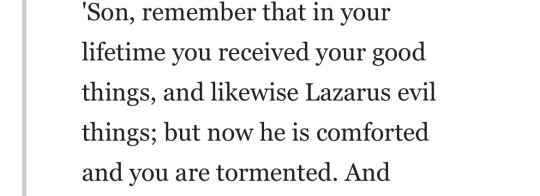
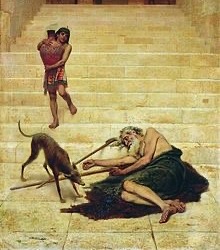



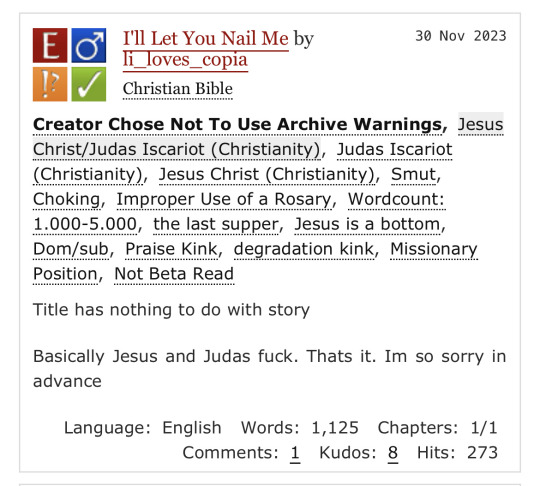



these are all of the screenshots I took in the past hour
#good christian#bible#jesus x judas#oh my god it actually suggested that tag that's awesome#luke 16#John 11#lazarus of bethany#the rich man and lazarus#hey this animal can talk#weak jaws
1 note
·
View note
Text
Church notes 10th December 2023
10th
Luke 19:1 - 10
Luke 18:9 - 14
Zaccheaus
Roman rule
Salvation
Zaccheaus
For us
Romans
They used puppet rulers whenever possible.
Therefore they favoured the existing power structure.
Therefore while Jesus was drawing large crowds Rome wasn't concerned, nor involved.
However, the Jewish Leaders were concerned that if things got too far that Rome would intervene in a way that wouldn't end well for them.
John 11:41 - 50
That they would loose everything.
Zaccheus
Roman Taxes
Land tax
Import and Export
Entering Judea via Jericho because Samaria was avoided.
The tax collectors had a reputation of cheating others.
Salvation
vs 9
Repentance. The starting point.
Sin
It is more than being naughty or disobedient.
There is more going on.
Genesis 3
Adam and Eve wanted to know more and to decide for themselves what was Good and Evil.
Sin
Removing God from the situation.
The parable
The Pharisee was boasting to God about how good he was.
Repent
Turning around.
The tax collector knew he was in the wrong.
The starting point. Also the continuing point.
We should always be calling upon Him,
Ezekiel 36:25 - 27
He comes into our heart and He works on it.
Zaccheaus
A sense of right and wrong.
There is an objective right and wrong
This is determined by God.
We are all sinners
We need to be in a relationship with God.
#advent#church#ezekiel#ezekiel 36#genesis 3#gospel of john#gospel of luke#john 11#luke 18#luke 19#zacchaeus
0 notes
Text
John 11, Reed's Version
Now there was a man named Lazarus who was sick. He was from Bethany, the same village as Mary and Martha, his sisters. (This is the same Mary who would later pour perfume on Jesus’s feet and wipe them with her hair.) So the sisters sent a message to Jesus, “Lord, your dear friend Lazarus is sick.” When Jesus heard this, he reassured his apprentices, “His sickness isn’t fatal. It’s happening for God’s glory: so the Son of Man will be honored through it.” Now, Jesus deeply loved Martha, Mary and Lazarus. However, even after he got that report, Jesus stayed where he was. Only after two more days did he say to his apprentices, “Let’s go back to Judea.” But they objected, “Rabbi, they just tried to stone you to death in Judea! Why do you want to go back there again?” Jesus replied, “There are twelve hours of daylight. If you walk in the day you won’t trip, because you can see by the light of the sun. But if you try to walk at night you’ll trip and fall, because you don’t have any light.”
Then Jesus went on to tell his apprentices, “Our friend Lazarus has fallen asleep. But I’m going there to wake him up.” Then the disciples remarked, “Lord, if he’s resting, then perhaps he’ll get well on his own.” But Jesus meant that he had died, while the apprentices thought he meant that Lazarus was merely resting. So Jesus said it plainly, “Lazarus is dead. But for your sake I’m glad we weren’t there, so your faith will be strengthened. But now it’s time to go to him.” Then Thomas (which means, “the Twin”) told the other apprentices, “Let’s go with Jesus, so he won’t die alone.”
When they arrived in Bethany, Jesus found that Lazarus had been dead for four days. Now, Bethany was only a couple of miles from Jerusalem, so many Judeans had come from the city to comfort Martha and Mary over the loss of their brother. When Martha heard that Jesus had arrived, she went out to meet him, but Mary was left sitting at home. Martha said to Jesus, “O lord, if only you had been here my brother wouldn’t have died. But I know that even now God will give you whatever you ask for.” Jesus told her, “Your brother will live again.” Martha said, “Yes, I know I will see him again, at the rebirth, after the end of this world.” Jesus told her, “I am the rebirth. I am life. Those who believe in me will never truly die, though their bodies might. Everyone who lives by faith in me will never die in eternity future. Do you believe this?” Martha replied, “Yes lord. I firmly believe that you are the Messiah, the Son of God, the One we’ve been waiting for.”
Then Martha went to get her sister Mary and told her quietly, “The Teacher is here and he wants to see you.” When Mary heard this, she jumped up and hurried out to him. Now, Jesus was still outside of the village, in the spot where Martha had met him. So the other mourners who were in the house comforting Mary didn’t know why she got up so fast and left. So they went after her, imagining that she was headed to the tomb to mourn there.
When Mary came to the place where Jesus was and saw him, she fell down at his feet, and said, “O lord, if only you had been here my brother wouldn’t have died.” When Jesus saw her crying, and all the others who were with her also crying, he became troubled in his heart and very upset. He asked them, “Where did you bury Lazarus?” They responded, “Come see, lord.” Jesus was moved to tears. The bystanders remarked, “Look how much he loved his friend.” But some of them wondered, “If Jesus healed a blind man, why didn’t he come in time to keep Lazarus from dying?”
Then Jesus, still troubled at heart, arrived at the tomb. It was a cave in the rock, with a large stone placed over the entrance. So Jesus said, “Remove the stone.” But Martha, sister of the deceased, said, “Lord, there must be a stench by now, since it’s been four days.” But Jesus replied, “Didn’t I tell you that if you only believed, you’d see God’s power?” So she had the stone rolled away. Then Jesus looked up to heaven and said, “Father, I thank You that You’ve listened to my prayer and granted it. Of course, I know You always listen to me, but I say it for the sake of the others here, so they will believe that You sent me with Your approval.” And then Jesus hollared into the cave, “Lazarus, come out!” Then Lazarus, who died, came out, still wrapped up in strips of linen and a cloth around his head. Jesus told the others, “Take off the wrappings so he can go home.”
And so many Judeans who had come from Jerusalem believed in Jesus after they saw everything he did. But a few went off to tell the Pharisees about it all. So they called a council meeting of the chief priests and Pharisees, and they asked, “Why aren’t we doing anything about this guy? He’s performing lots of miracles. If we let him go on like this, everyone will believe in him and start an uprising, and then the Romans will come and destroy our temple and our whole nation.” Then one of them, Caiaphas, the high priest at the time, told them, “No, you don’t understand! Don’t you see that it’s better for one man die for the people than the whole nation to be destroyed?” Now, he wasn’t saying this on his own, but because he was the high priest God revealed to him that Jesus would die for the people. And not only that, but that Jesus would gather all of God’s children dispersed around the world back into one people. And so from that time on they resolved that Jesus must be killed.
So Jesus couldn’t go about in public in Judea anymore. He left Jerusalem and went away toward the desert, to a village called Ephraim, and he stayed there with his apprentices.
Now, when the next Passover festival came around, many from the countryside went to Jerusalem before the festival started to ritually purify themselves. And the crowds were on the lookout for Jesus. As they stood in the temple they asked each other, “What do you think? Will he come to the festival?” They were in doubt because the chief priests and Pharisees had issued orders that anyone who knew where Jesus was must come forward, so he could be arrested.
0 notes
Text
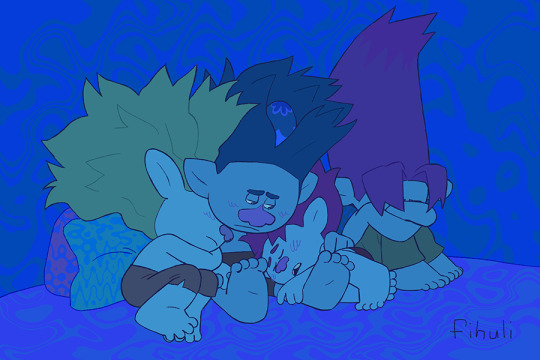

first night alone
#i love them your honor#trolls#dreamworks trolls#trolls 3#trolls band together#brozone#trolls john dory#trolls spruce#trolls clay#trolls floyd#trolls branch#as the egg#my art#they just lost their mom and they lost their dad only a couple of months prior#this is before grandma moves in with them#young brozone#floyd is 11 here and jd is 18#so you know why floyd looks so baby#group hug#i had a reaction to the film orphan on in the other window for background noise while drawing...#so i titled the file trolls_orphan before i even fully knew what i was going to draw 🙃
6K notes
·
View notes
Text
Sunday School Live Stream - May 14, 2023
https://www.facebook.com/akronalliancefellowship/videos/286480130379309
Sunday school session by Asst. Pastor Melvin Gaines.
John 11:45-57
View On WordPress
#arrest#believe#Caiaphas#Jesus#Jews#John#John 11#kill#matter#miracle#nation#one man#Passover#plot#pride#prophecy#prophetic#Romans#Sadducee#Satan#Satanic influence#sign#what to do
0 notes
Text
What Does God Want? (John 11:1-45)
What God wants, and what we want, is not always the same thing.
The Raising of Lazarus, by Rembrandt, c.1632
Now a man named Lazarus was sick. He was from Bethany, the village of Mary and her sister Martha. (This Mary, whose brother Lazarus now lay sick, was the same one who poured perfume on the Lord and wiped his feet with her hair.) So the sisters sent word to Jesus, “Lord, the one you love is sick.”
When he heard this, Jesus said, “This sickness will…
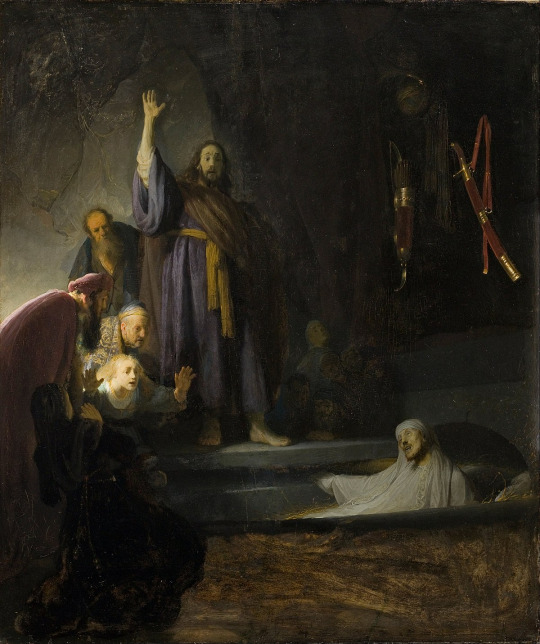
View On WordPress
#change#Christ#christ&039;s ministry#christian life#christianity#death#disciples#dying to plans#expectations#following jesus#god&039;s plan#god&039;s will#gospel of john#jesus#jesus christ#john 11#lazarus#letting go#new life#old life#plans#resurrection
0 notes
Text

Arthur & John, The Guys of All Time
#Happy birthday to Artie btw posted it yesterday at literally 11:59pm.. still made it before his birthday ended#why do I do this to myself???#malevolent#malevolent podcast#arthur lester#john doe#john malevolent#my art
1K notes
·
View notes
Text
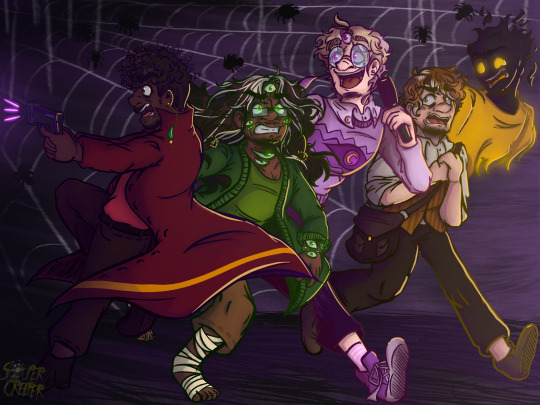
they are running from the horrors
(individual characters under the cut)

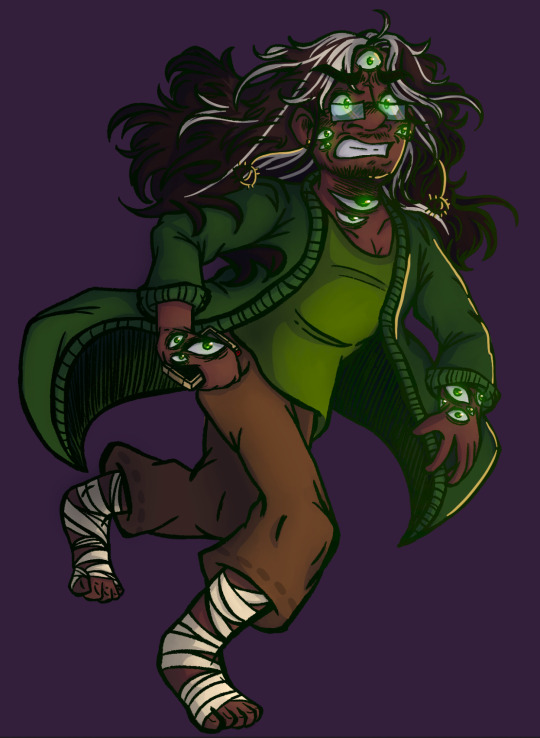

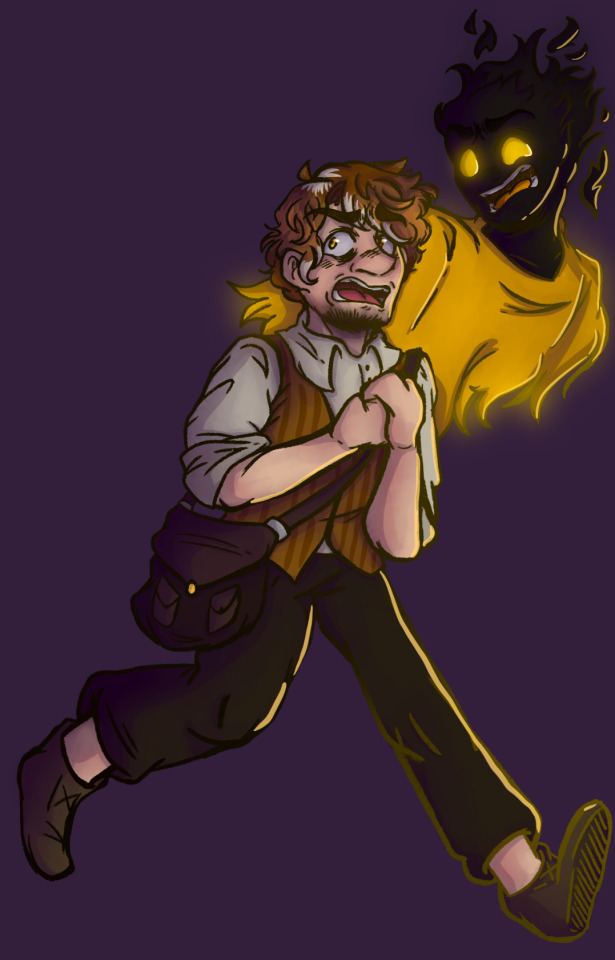
#HOLY SHIT THIS PIECE TOOK ME 11 FUCKING HOURS!!1!1!1!1????!/1?!?#anyways i love seeing crossovers with podcasts#i wanna see them all hang out and be buddies#tma#the magnus archives#wtnv#welcome to night vale#malevolent#tpp#the penumbra podcast#jonathan sims#jon sims#cecil gershwin palmer#cecil palmer#arthur lester#john doe#juno steel#podcast#audio drama#crossover#my art#art#fanart
1K notes
·
View notes
Text
JOHN S.O.A.P. ~ CHAPTER 11
Monday, 10/24/22
SCRIPTURE:
But when Jesus heard about it He said,
“Lazarus’s sickness will not end in death.
"No, it happened for the glory of God so that the Son of God will receive glory from this.”
~ John 11:4
Jesus responded, “Didn’t I tell you that you would see God’s glory if you believe?”
~ John 11:40
OBSERVATION:
My sickness - my sin-sickness - will not end in death - because of Jesus...
...Who will "...receive the glory..."
...as He should...
...and I will get to see this glory through and because of my believing...
APPLICATION:
Look for and give God the glory in whatever happens - and as hard as it might be at times, there's always Jesus...
Believe... so simple and yet so hard sometimes...
PRAYER:
Heavenly Father God - all praise and glory to You for Your grace as shown by and through Jesus... forgive my struggles to believe when I let what's going on become distracting and all about me... May Your Holy Spirit continue to remind me of this simple truth, and to seek Your will over my own, as Jesus prayed in the garden... in His Name... and for Your worshipful praise...
Yours, in Him... gratefully...
g
<))><
0 notes
Text
The authority of the eternal kingdom
The authority of the eternal kingdom
Messiah purchased a people and delivered an eternal kingdom to his Father, the God of the universe.
I believe one of the reasons the gospel of the kingdom is so misunderstood today is because people fail to see that the kingdom is all about authority. If there is a kingdom, there is a king, and if there is a king, then that king has authority. So to admit that there is a kingdom of God is to…
View On WordPress
#1 corinthians 15#acts 13#authority#bible#bible study#christ#core of the bible#eternal#eternal life#eternity#god#gospel#jesus#john 11#king#Kingdom#kingdom of god#life#Matthew 6#messiah#psalm 110#Revelation 21#Revelation 22#sermon on the mount#the father#yahweh#yeshua
0 notes
Text
Lazarus and the Tooth by Julie Arduini
Lazarus and the Tooth by Julie Arduini
Our daughter has had the same set of braces for four years and counting. The orthodontist has tried to make light of our long term relationship by joking he will most likely be in Hannah’s future wedding because they have known each other so long. As you can imagine, we aren’t ready to laugh just yet.
I knew the process would take longer than most because of what I’ve read about hypothyroidism…
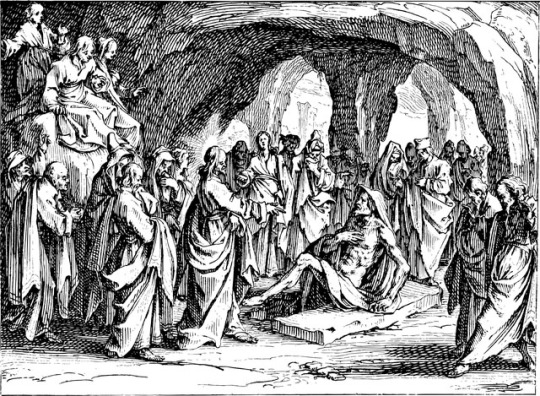
View On WordPress
#albright hereditary osteodystrophy (pseudohypoparathyroidism)#Believing God#healing#John 11#Julie Arduini#Lazarus#Lazarus and the Tooth by Julie Arduini#praying#Psalm 37:4#testimony#Trusting God
0 notes
Text
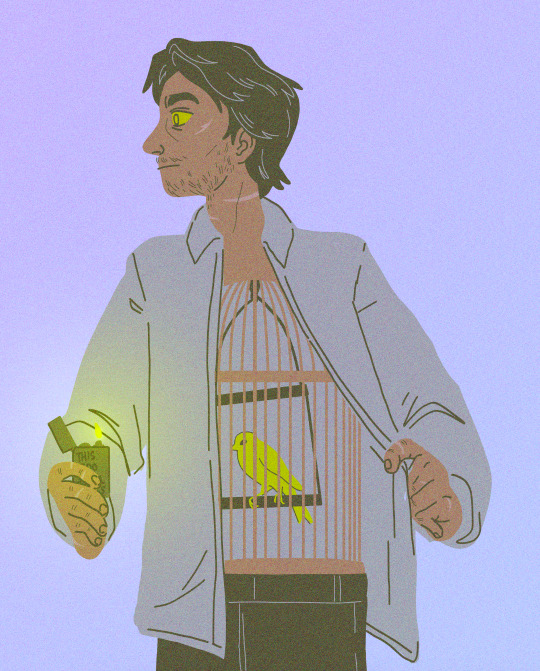
canary in a coal mine...
#ignore that I gave Arthur 11 fingers by accident#Arthur lester#John doe#malevolent#malevolent podcast#malevolentcast#malevolent fanart
1K notes
·
View notes
Text
I'm simply too fast.


teaching the champion how to selfie 📷✨

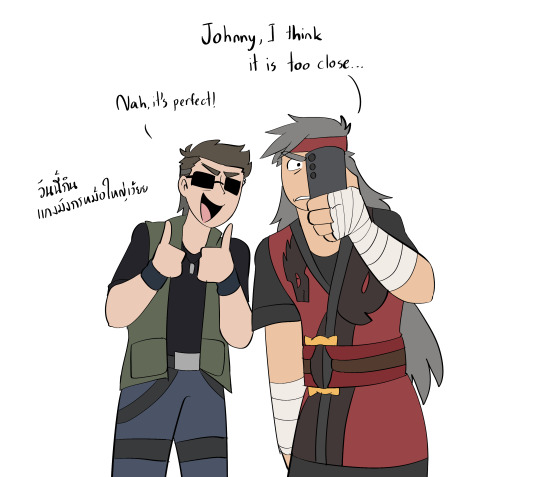
#they are that kind of friends that the other couldn't get away from and the other enjoy annoying him#I like Liu and John with Lao and Sonya#they are perfect squad friends#liu kang#johnny cage#mortal kombat#mkx#mortal kombat x#mortal kombat fanart#mk fanart#mk11#mortal kombat 11
290 notes
·
View notes